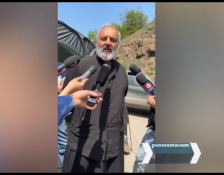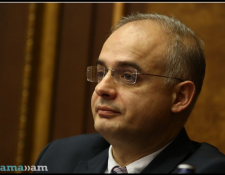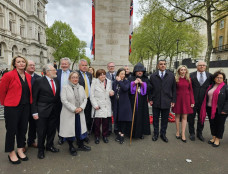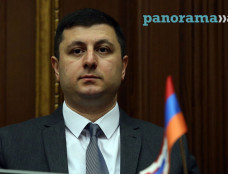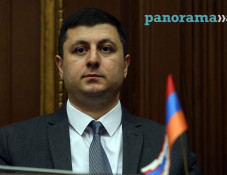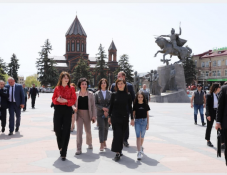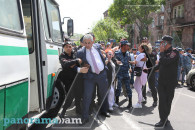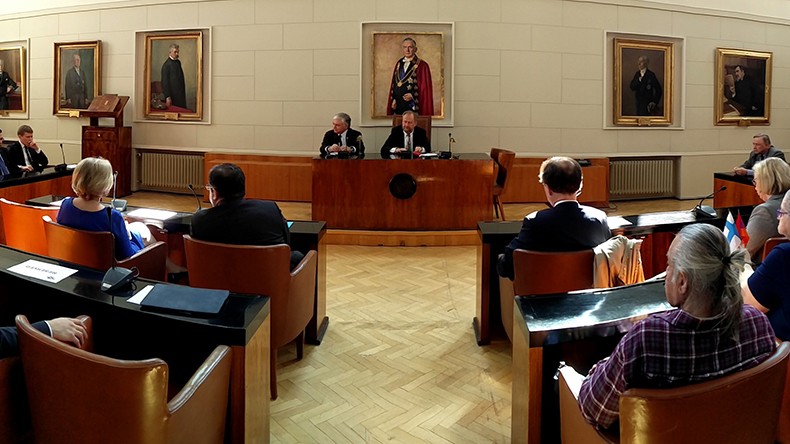
Edward Nalbandian: The bottom-line of the Nagorno-Karabakh conflict is the realization of people’s right to self-determination
The bottom-line of the Nagorno-Karabakh conflict is the realization of people’s right to self-determination, one of the core principles of international law, Armenian Foreign Minister Edward Nalbandian stated at Aleksanteri Institute and the University of Helsinki within his visit to Finland. As the press department of the RA Foreign Ministry reports, Nalbandian discuss in his speech the recent developments in the Nagorno-Karabakh conflict.
“Being unable to solve the issue by military means Azerbaijan had to sign, with Nagorno-Karabakh and Armenia, in May 1994 ceasefire agreement, in July 1994 agreement on the reinforcement of ceasefire, and in February 1995 agreement on the consolidation of ceasefire, which have no time limitations. During the following years negotiations were held by the mediation of the OSCE Minsk Group Co-Chairs. By the way, one of the first Co-Chairs of the OSCE Minsk Group was Finland. In this process were involved such prominent Finnish diplomats as Heikki Talvitie and Rene Nyberg, “Nalbandian stressed.
The minister informed that since the beginning of April Azerbaijan has unleashed large-scale aggressive military operation along the entire Line of Contact with Nagorno-Karabakh, which targeted also civilian infrastructures and settlements and which left several hundreds of killed and wounded.
“In more than 20 years of fragile ceasefire regime this became an unprecedented destabilization with the use of heavy weaponry, tanks, rockets, artillery, aviation. The continuous acquisition of offensive armaments, the feeding of its society with bellicose warmongering and the spread of hate-speech against Armenians by Baku sooner or later could not but result in such a situation. This is something that we had warned all our international partners during the past several years,” the minister stressed.
Informing that Azerbaijan opposes all confidence building measures - starting with preparing societies for peaceful solution to the creation of ceasefire violations’ investigation mechanism, Armenian Minister said: “Thus, Azerbaijan is doing everything possible to fail any progress in the negotiation process, simultaneous to purchasing unprecedented amounts of offensive weaponry and then declaring that it has a right to use force as it does not see any perspectives in the negotiations. To put it simply, Azerbaijan has failed in the negotiations and is trying to find success via military option, where it has failed as well. Use or threat of use of force has been time and again condemned by the international community. Our neighbor has gone further, pursuing extremely dangerous policy of forcing its own will through the adoption of mass terror.”
Armenian minister reflected on the “the exceptional brutality of Azerbaijani armed forces against the civilian population of Nagorno-Karabakh.” “These are gross violations of the international humanitarian law. For years Armenophobia has gotten wider dissemination in Azerbaijan on the state level. This is not a secret to anyone,” the minister stressed.
Edward Nalbandian then once again emphasized that the essence of the Nagorno-Karabakh conflict remains the right of the people of Nagorno-Karabakh to freely and securely determine their future.
“Nagorno-Karabakh has never been a part of independent Azerbaijan, it was annexed to the Soviet Azerbaijan by Stalin. Moreover, Azerbaijan has for decades carried out a policy of ethnic cleansing towards Nagorno-Karabakh, menacing the physical security of the Nagorno-Karabakh people, then unleashing an open aggression against Nagorno-Karabakh using mercenaries closely linked to the international terrorist organizations,” he underlined.
“The large-scale military offensive this April has been a serious blow to the negotiation process and to more than two decades-long efforts of the Minsk Group Co-Chairs. Now immense efforts are needed to restore the negotiation environment,” Minister Nalbandian concluded.
Newsfeed
Videos





